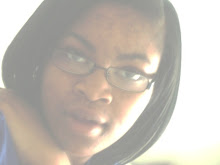You're sad because you're sad.
It's psychic. It's the age. It's chemical.
Go see a shrink or take a pill,
or hug your sadness like an eyeless doll
you need to sleep.
Well, all children are sad
but some get over it.
Count your blessings. Better than that,
buy a hat. Buy a coat or pet.
Take up dancing to forget.
Forget what?
Your sadness, your shadow,
whatever it was that was done to you
the day of the lawn party
when you came inside flushed with the sun,
your mouth sulky with sugar,
in your new dress with the ribbon
and the ice-cream smear,
and said to yourself in the bathroom,
I am not the favorite child.
My darling, when it comes
right down to it
and the light fails and the fog rolls in
and you're trapped in your overturned body
under a blanket or burning car,
and the red flame is seeping out of you
and igniting the tarmac beside you head
or else the floor, or else the pillow,
none of us is;
or else we all are.
Commentary
Reading Margaret Atwood's poems, we know that her poetry can reflect multiple meanings. It's not surprising that we are able to see multiple themes in her poem Sad Child. Through her diction, metaphor and imagery Atwood could be displaying a girls experience of becoming a woman, naturally through her menstrual cycle. The poem delivers a message although this experience seems hard and painful, it will pass, get over it. This message is conveyed in a uplifting, "tough love" tone
The diction in the poem allows us to establish that the child in the poem is a girl, the words dress and sugar, the word sugar describes what adults and society label little girls sweet like sugar. The dress mentioned in the third stanza, has a ribbon on it, which adds to the stereotypical girl wearing a dress, looking pretty and sweet. As the stanza continues, the girl in the poem is in the bathroom, she says to herself, "I am not the favorite child." In the bathroom where she finds out she has gotten her first period, she realizes she is not the favorite child anymore because she is not a child at all, because biologically she is a woman.
The speaker in the poem describes what a period feels like in a sarcastic tone. "you're trapped in your overturned body,/under a blanket or burning car/and the red flame is seeping out" Periods are natural and there is no way of escaping it, anywhere you are or no matter who you are we all bleed.
Sadness is definitely a theme in the poem. The child is sad when children are usually seen as carefree beings with lots of joy and happiness, this child is sad. To deal with the sadness that is caused by the period, the speaker suggest these things that could help. "See a shrink or take a pill...buy a hat. Buy a coat or pet.
Take up dancing to forget." The speaker is sarcastically offering the child ways to get over her sadness. The speaker is saying, 'so what do wanna do? this or that? is it really going to ease your sadness?' From the fourth stanza on the speaker delivers the primary message.
The primary message from the speaker to the child in the poem could be that all women go through this menstrual cycle and we all overcome and survive it. "I am not the favorite""My darling, when it comes right down to it...or else we all are." The speaker whom i assume is a woman is experienced and can assure the former child that everything will be fine, it's not as bad as it seems.
Subscribe to:
Post Comments (Atom)

No comments:
Post a Comment